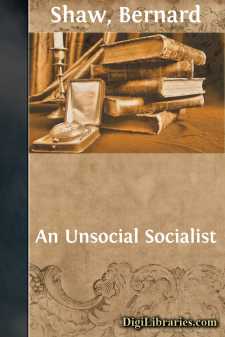Categories
- Antiques & Collectibles 13
- Architecture 36
- Art 48
- Bibles 22
- Biography & Autobiography 813
- Body, Mind & Spirit 142
- Business & Economics 28
- Children's Books 17
- Children's Fiction 14
- Computers 4
- Cooking 94
- Crafts & Hobbies 4
- Drama 346
- Education 46
- Family & Relationships 57
- Fiction 11829
- Games 19
- Gardening 17
- Health & Fitness 34
- History 1377
- House & Home 1
- Humor 147
- Juvenile Fiction 1873
- Juvenile Nonfiction 202
- Language Arts & Disciplines 88
- Law 16
- Literary Collections 686
- Literary Criticism 179
- Mathematics 13
- Medical 41
- Music 40
- Nature 179
- Non-Classifiable 1768
- Performing Arts 7
- Periodicals 1453
- Philosophy 64
- Photography 2
- Poetry 896
- Political Science 203
- Psychology 42
- Reference 154
- Religion 513
- Science 126
- Self-Help 84
- Social Science 81
- Sports & Recreation 34
- Study Aids 3
- Technology & Engineering 59
- Transportation 23
- Travel 463
- True Crime 29
Bernard Shaw
Bernard Shaw, commonly known as George Bernard Shaw, was an Irish playwright, critic, and polemicist born on July 26, 1856, and passed away on November 2, 1950. He was a prominent figure in British theatre, renowned for his wit, satirical style, and incisive social commentary, with notable works including "Pygmalion" and "Man and Superman." Shaw received the Nobel Prize in Literature in 1925 for his contributions to literature and was a co-founder of the London School of Economics.
Author's Books:
Sort by:
by:
Bernard Shaw
I Moncrief House, Panley Common. Scholastic establishment for the sons of gentlemen, etc. Panley Common, viewed from the back windows of Moncrief House, is a tract of grass, furze and rushes, stretching away to the western horizon. One wet spring afternoon the sky was full of broken clouds, and the common was swept by their shadows, between which patches of green and yellow gorse were bright in the...
more...
by:
Bernard Shaw
CHAPTER I At seven o'clock on a fine evening in April the gas had just been lighted in a room on the first floor of a house in York Road, Lambeth. A man, recently washed and brushed, stood on the hearthrug before a pier glass, arranging a white necktie, part of his evening dress. He was about thirty, well grown, and fully developed muscularly. There was no cloud of vice or trouble upon him: he was...
more...
by:
Bernard Shaw
THE RHINE GOLD Let me assume for a moment that you are a young and good-looking woman. Try to imagine yourself in that character at Klondyke five years ago. The place is teeming with gold. If you are content to leave the gold alone, as the wise leave flowers without plucking them, enjoying with perfect naivete its color and glitter and preciousness, no human being will ever be the worse for your...
more...
by:
Bernard Shaw
ACT I It is after dinner on a January night, in the library in Lady Britomart Undershaft's house in Wilton Crescent. A large and comfortable settee is in the middle of the room, upholstered in dark leather. A person sitting on it [it is vacant at present] would have, on his right, Lady Britomart's writing table, with the lady herself busy at it; a smaller writing table behind him on his left;...
more...
by:
Bernard Shaw
PREFACE The Admirable Bashville is a product of the British law of copyright. As that law stands at present, the first person who patches up a stage version of a novel, however worthless and absurd that version may be, and has it read by himself and a few confederates to another confederate who has paid for admission in a hall licensed for theatrical performances, secures the stage rights of that...
more...
by:
Bernard Shaw
BERNARD SHAW N.B. The Euripidean verses in the second act of Major Barbara are not by me, or even directly by Euripides. They are by Professor Gilbert Murray, whose English version of The Baccha; came into our dramatic literature with all the impulsive power of an original work shortly before Major Barbara was begun. The play, indeed, stands indebted to him in more ways than one. G. B. S. Before...
more...
by:
Bernard Shaw
ACT I [Summer afternoon in a cottage garden on the eastern slope of a hill a little south of Haslemere in Surrey. Looking up the hill, the cottage is seen in the left hand corner of the garden, with its thatched roof and porch, and a large latticed window to the left of the porch. A paling completely shuts in the garden, except for a gate on the right. The common rises uphill beyond the paling to the...
more...
by:
Bernard Shaw
CHAPTER I In the dusk of an October evening, a sensible looking woman of forty came out through an oaken door to a broad landing on the first floor of an old English country-house. A braid of her hair had fallen forward as if she had been stooping over book or pen; and she stood for a moment to smooth it, and to gaze contemplatively—not in the least sentimentally—through the tall, narrow window....
more...
by:
Bernard Shaw
THE REVOLT AGAINST MARRIAGE There is no subject on which more dangerous nonsense is talked and thought than marriage. If the mischief stopped at talking and thinking it would be bad enough; but it goes further, into disastrous anarchical action. Because our marriage law is inhuman and unreasonable to the point of downright abomination, the bolder and more rebellious spirits form illicit unions,...
more...
by:
Bernard Shaw
ACT I On the heights overlooking the harbor of Mogador, a seaport on the west coast of Morocco, the missionary, in the coolness of the late afternoon, is following the precept of Voltaire by cultivating his garden. He is an elderly Scotchman, spiritually a little weatherbeaten, as having to navigate his creed in strange waters crowded with other craft but still a convinced son of the Free Church and...
more...











